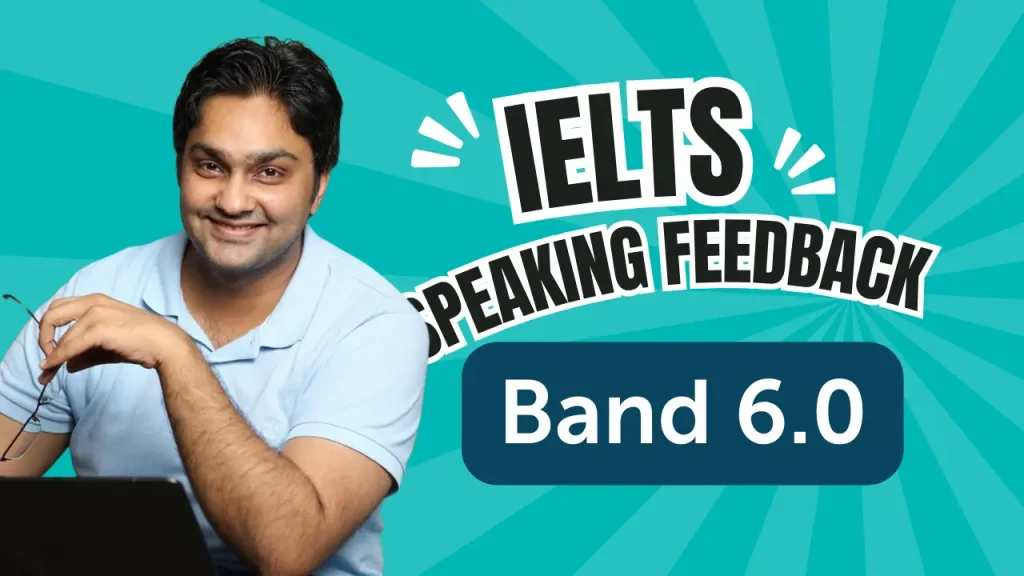Preparing for the IELTS Speaking test can be challenging, specifically when you’re unsure about where you’re going wrong. Mock tests are one of the most effective ways to assess your speaking skills and understand what you need to work on to achieve your desired band score.
In this blog, I’ll share a real-life mock test I conducted with one of my students, who scored between Band 6 and 6.5. You can also watch the full video below for detailed insights into how I guide students during these sessions. Here’s what you’ll learn by watching this video:
- Examples of detailed feedback based on official IELTS band descriptors.
- How I simulate real IELTS Speaking test conditions.
- The types of questions you can expect in each part of the test.
Mistakes to avoid and tips to improve fluency and coherence.
What Is an IELTS Speaking Mock Test?
An IELTS Speaking mock test is a simulation of the real test. It’s designed to replicate the format, timing, and type of questions you’ll encounter during the actual IELTS Speaking exam. The test is divided into three parts:
- Part 1: Introduction and interview (4-5 minutes)
- Part 2: Long turn or cue card task (Up to 2 minutes)
- Part 3: Discussion or two-way interaction based on Part 2 (4-5 minutes)
Mock tests not only familiarize you with the structure but also give you a chance to receive constructive feedback from an expert.
The way I provided the feedback to the student was after the completion of every part. She got notes on where she went wrong with her fluency, pronunciation and grammatical mistakes.
Why Are Mock Tests Essential for IELTS Preparation?
Here are some key benefits of taking IELTS Speaking mock tests:
1. Understand Your Current Band Level
Mock tests help you gauge where you currently stand. They provide a realistic picture of your strengths and areas of improvement. In my video, you’ll see how I evaluate a student’s performance based on IELTS criteria: fluency and coherence, lexical resource, grammatical range and accuracy, and pronunciation.
2. Identify Common Mistakes
During the mock test, I identify the specific mistakes students make—whether it’s hesitation, overuse of fillers, grammatical errors, or mispronunciations—and provide actionable advice to fix them.
3. Boost Your Confidence
Practicing under exam-like conditions helps reduce anxiety and build confidence. Many of my students report feeling more prepared and relaxed during the actual test after attending my mock sessions.
4. Receive Personalized Feedback
One-on-one feedback is a game-changer. In my sessions, I focus on individual problem areas and suggest practical ways to improve. Watch the video below to see how I analyze my student’s performance and offer targeted solutions.
How I Conduct Online IELTS Speaking Mock Tests
Here’s a step-by-step process of how I conduct these sessions:
- Pre-Test Consultation: I discuss your target band score and current challenges.
- Test Simulation: You enroll in our classes where I replicate the IELTS Speaking test environment, asking questions from all three parts. I also replicate the IELTS Reading, Writing and the Listening modules.
- Detailed Feedback: After the test, I provide comprehensive feedback, breaking down your performance across the four IELTS assessment criteria.
- Action Plan: I share practical tips and exercises tailored to your needs to help you improve before the real test.
How to Book Your Own IELTS Speaking Mock Test
If you found this blog and video helpful, imagine the benefits of receiving one-on-one guidance tailored to your needs. My online IELTS Speaking mock tests are designed to help you:
- Understand what examiners look for in high-band answers.
- Identify and overcome your weaknesses.
- Build the confidence to perform your best on test day.
Remember, you need to be confident and have a positive body language, with a smile on your face. Not everything has to be exceptional or perfect. No need to memorize answers as examiners can identify these from a mile away!
You also need to use expressions and understand how to stress on different words to illustrate their meanings.
The way you talk actually has a bigger and better impact than just trying to speak in a monotonous tone with attempt of being perfect. You don’t need to do this!
Be natural, fluent and confident the way you talk just like you would in your real life with friends and family members. Again, this isn’t a knowledge test, but a speaking test, where you will be graded on how your spoken English skills, rather than only your grammar and vocabulary.
Ready to take your preparation to the next level?
- Sign up for my IELTS online coaching classes today!
- Visit: ieltskaro.com
- Email: [email protected]





